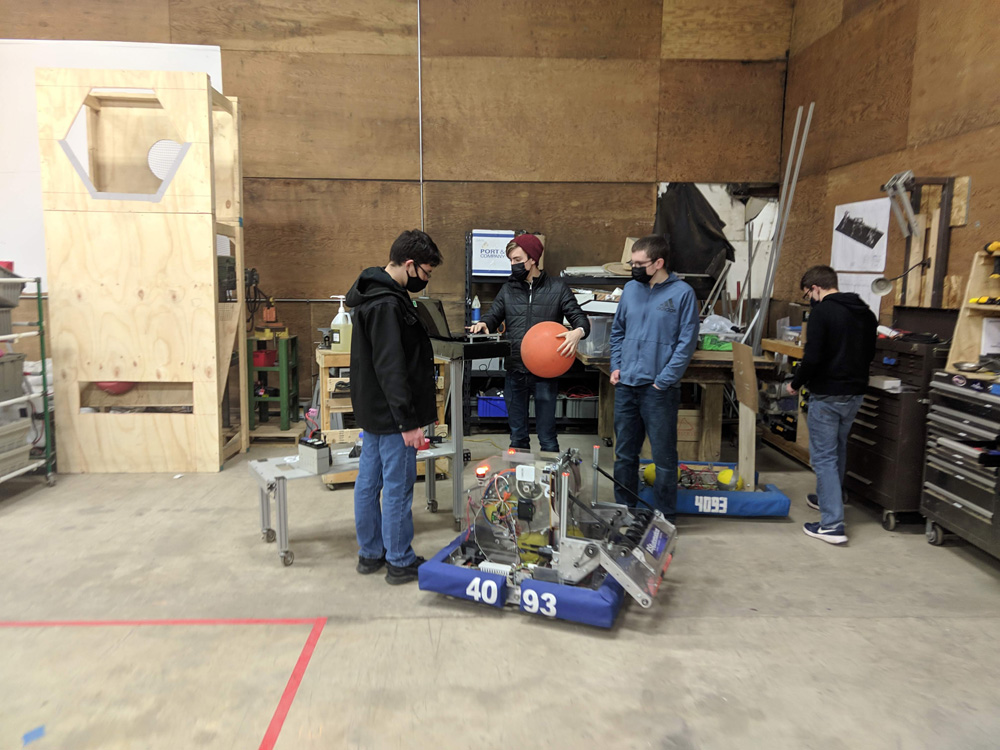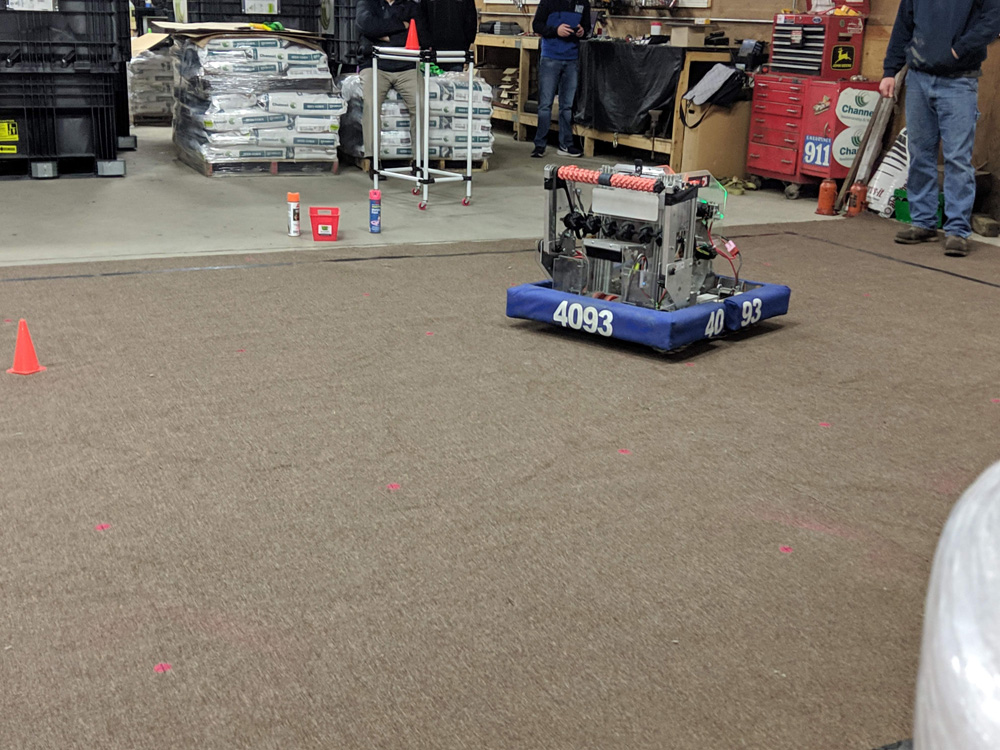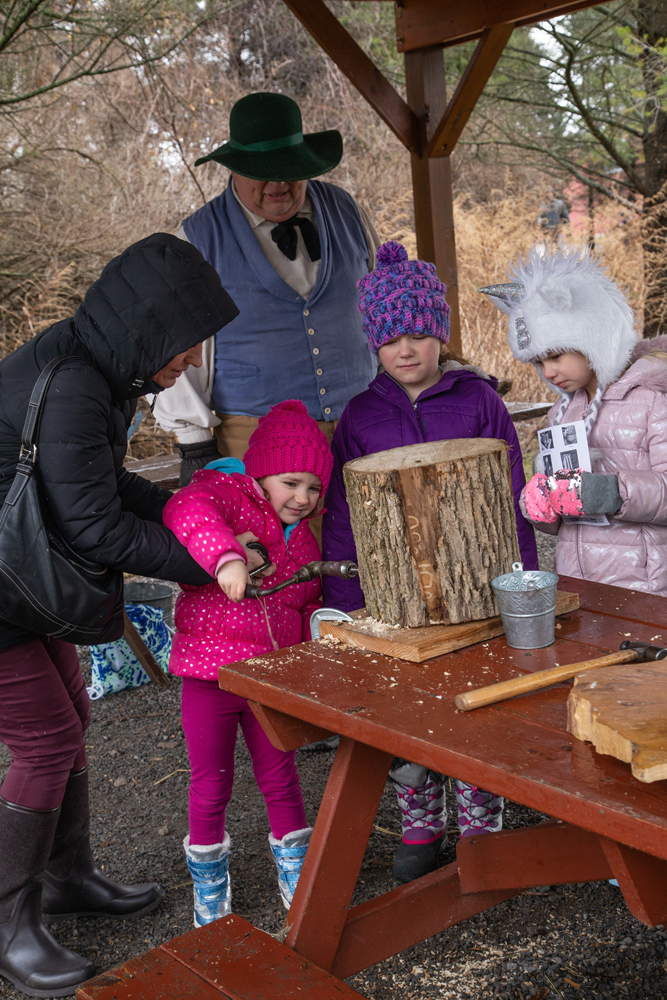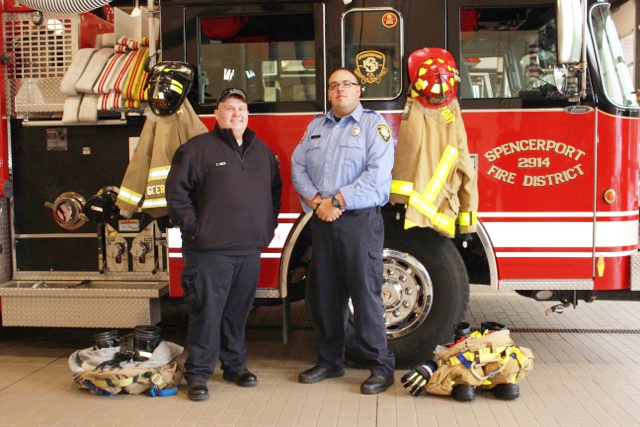Orleans 4-H Robotics Team thrives in remote competition

“It was frustrating at first, but the kids thrived when they got together, adapted, and made the best out of one of the better robots we have ever built,” says Jody Neal, a mentor and coach of the Orleans County 4-H Robotics Team “Hardwired,” regarding the 2021 FIRST Robotics Competition, held remotely.
Neal explains that the Orleans team of 10 to 12 youth is much smaller than many teams they compete against, which can have 100 members. “It gave the kids a boost to see the robot they built compete,” he says and adds the Orleans Hardwired team feels they did well and likely would have been in the top section at in-person finals based on their performance.
Club members typically work for weeks developing a robot they take in-person to the FIRST (For Inspiration and Recognition of Science and Technology) Finger Lakes Regional Competition at RIT. Neal says the team was at RIT in mid-March of 2020 when the competition shut down as the first COVID lockdowns and restrictions were put in place.
The RIT competition typically draws 50 teams from around the world, and with complicated and varied Covid regulations around the country this year, the FIRST organization made the decision to offer remote opportunities for competing in 2021. “2021 Infinite Recharge II” included a Games Design Challenge, an Innovations Challenge, and a Skills Challenge, which utilized the robot made during the 2020 season.
Neal says the Innovations Challenge, “had nothing to do with the robot. The teams had to market an idea to judges.” The Orleans County Hardwired team came up with a tool to help people utilize Zoom who live in places like assisted living facilities and often face challenges using the video and audio conferencing platform.
Orleans team members Jacob Foote and Zach Neal worked on the Game Design challenge. Foote, who is currently enrolled at GCC and a junior at Albion high school, explains, “each team could design the outlines of a competition for the robots. The theme of the competition we made was centered around medieval fantasy. During the design process of our game, we bounced ideas for obstacles and challenges in the game. We also had to consider the different experience levels for different teams so the game wasn’t too easy or challenging.”
Team member Jayden Neal of Albion, a homeschooled high school senior who also takes courses at GCC through their STEM program, worked on the Skills Challenge portion of the event. He says the challenge consisted of five separate challenges. “The top three scores in these challenges were counted. We entered four of the challenges, the HyperDrive Challenge, AutoNav Challenge, Power Port Challenge, and the Interstellar Accuracy Challenge. For the HyperDrive Challenge, our driver had to manually navigate four courses. For the AutoNav Challenge, our robot had to autonomously navigate three of those courses. In the Power Port Challenge, our robot had to shoot as many balls at a target as we could in one minute. For the Interstellar Accuracy Challenge, we had five minutes to shoot from several specific locations on the field with a limited amount of balls.”
Jayden says the challenges were recorded on video and submitted online. Orleans team members ended up with good scores on some of the challenges, he explains.
The experience provided an opportunity for Jayden and the team to be mentored and guided on programming skills. “We used our robot from last year, and we did not make too many changes,” he explains. “We did switch out the front and back wheels to a different style to allow smoother turning. On the programming side – my job – I wrote some code that would allow us to list a bunch of points on a grid that the robot would then follow, then created those paths for the AutoNav Challenge, it wasn’t the fastest, but it did work.”
Team members did not have to spend much time on adjustments for the shooting challenges, Jayden notes. Last year, a vision system was added to the Orleans robot that allowed it to line up with the target as well as estimate the distance and set the speed accordingly. “Just doing a minor tweak to the shooter to optimize it for the further distances we would be shooting at in the accuracy challenge, and a recalibration of distance to rpm portion of the code, allowed us to do alright in those challenges,” he says.
Overall, the team did well. “We ended up placing 8th in our group for the skills challenges,” Jayden says. “Our team is typically right in the middle of the pack at competitions, so we were pretty happy with that.”
Jayden has also been working to analyze unofficial statistics for this year’s competition. “Out of a little over 1,400 teams, we would be in 338th place on Team 3015’s global leaderboard,” he says. Our scores would also put us in 14th place out of the 45 teams from New York State that chose to compete. Although I wish I could have seen how this robot would have performed at a normal competition, these challenges were fun and did give us a way to compete against other teams.”
Provided information




